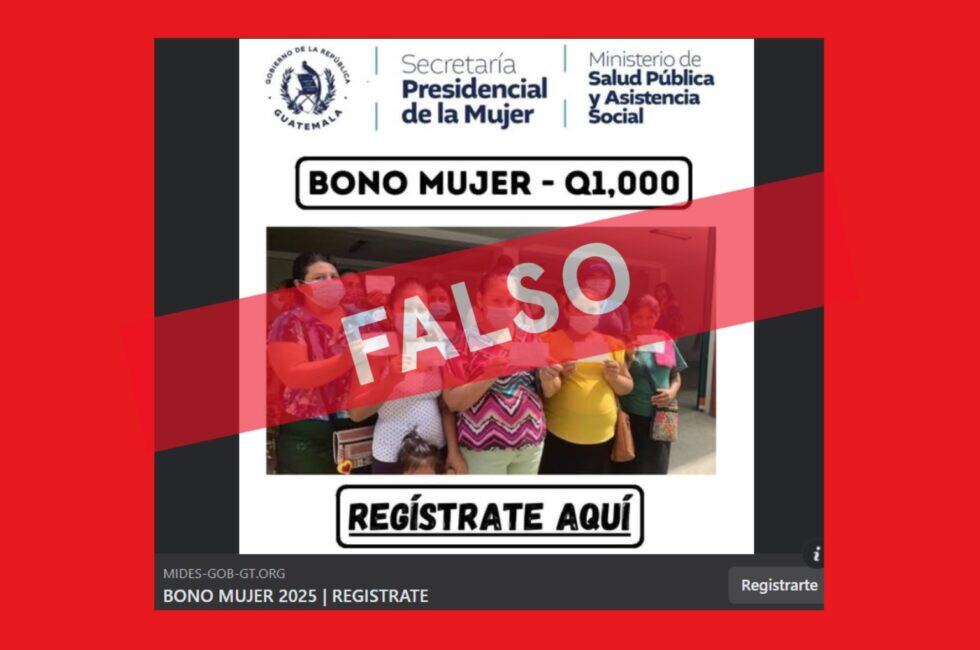
Guatemala City, Guatemala – A deceptive message promising a "Women's Bonus" of Q1000 is spreading rapidly across social media platforms in Guatemala, raising alarms about potential data theft. The fraudulent message, which targets women aged 18 and over, has been identified as a phishing scam, aiming to trick individuals into revealing their personal information.
The misleading posts appear on Facebook and WhatsApp, featuring official-looking logos from the Presidential Secretariat for Women (Seprem) and the Ministry of Public Health and Social Assistance. This tactic is used to lend credibility to the false claim that the Guatemalan government is distributing a new financial aid program.
However, Seprem has officially debunked the claim, issuing a statement on February 17th to clarify that the "Women's Bonus" is entirely fabricated. Further confirmation came from Olga Ovando, a communicator for the Ministry of Social Development (Mides), who verified that "individuals outside of Mides are attempting to scam people."
A critical element of the scam is a link included in the message, which directs users to a website that requests personal data. This website does not belong to any official government entity; instead, it is registered in Spain. Additionally, the photographs used in the posts have been traced back to the distribution of the actual Bono Social program in Chiquimula, demonstrating the scammers' use of stolen imagery.
This type of scam is not unique to Guatemala. Similar fraudulent "bonus" schemes have been reported in various Latin American countries, including Honduras, Ecuador, Paraguay, Bolivia, Chile, and Argentina. These scams often use the same template, simply changing the country's logos, currency, and images. For Example in Argentina a similar scam was promising 230,000 pesos.
Fact-checking organizations such as Colombia Check, Efecto Cocuyo, and Animal Político have also worked to debunk similar disinformation in Colombia, Venezuela, and Mexico, respectively.
To protect against phishing scams, the Guatemalan Banking Association recommends the following precautions:
Never share personal data through any medium.
Be suspicious of and avoid responding to messages that request confidential information.
Do not use links to access websites containing sensitive information, especially from untrusted sources.
Before entering confidential data, verify that the website is secure (check for "https://" and a closed padlock icon).
Keep operating systems and antivirus software up to date on all devices.
By remaining vigilant and following these guidelines, individuals can significantly reduce their risk of becoming victims of phishing scams.
[Copyright (c) Global Economic Times. All Rights Reserved.]






























